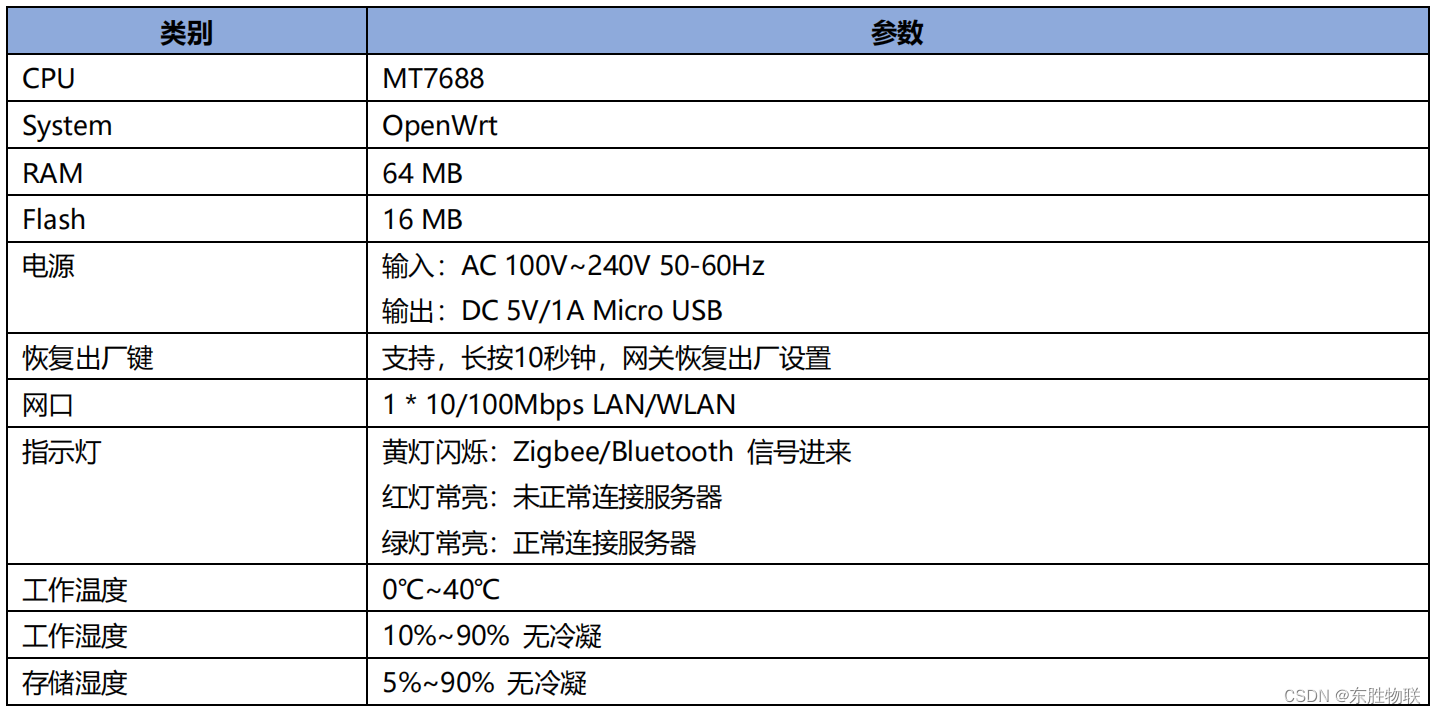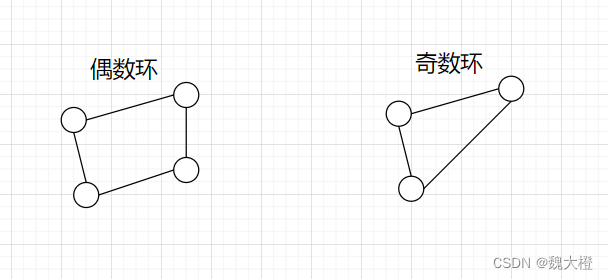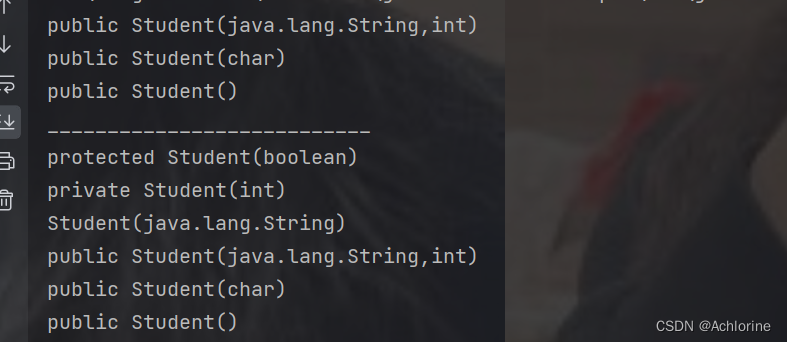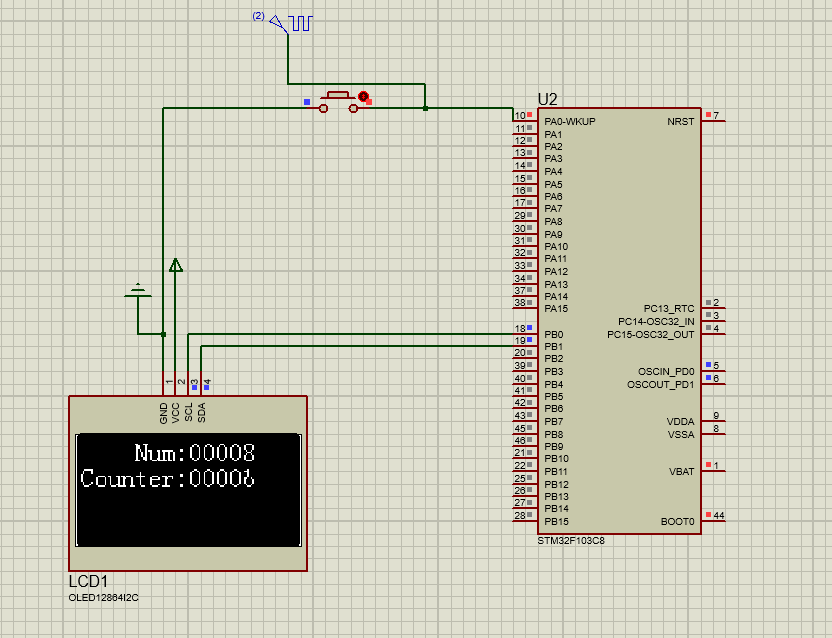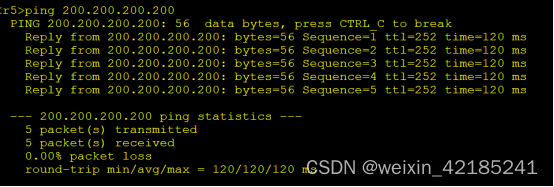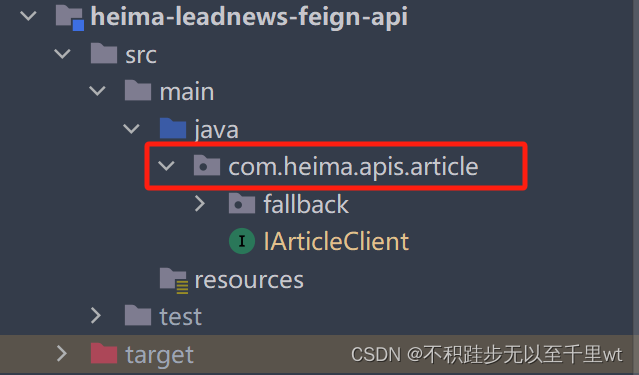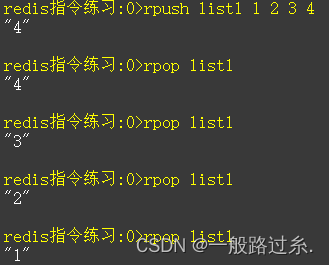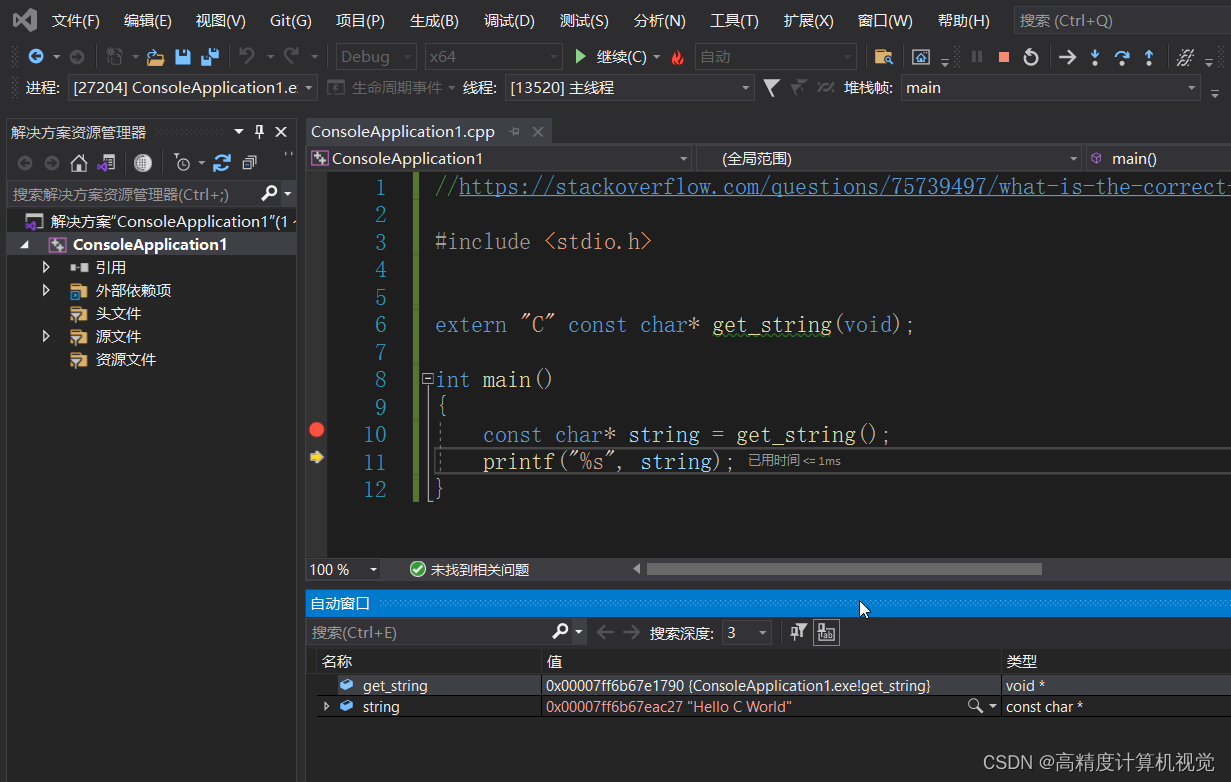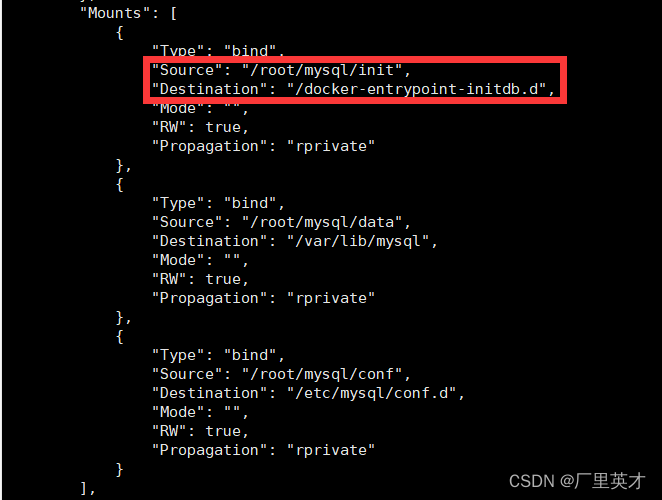
文章目录
- 一、使用方法
- 1.1 http 示例
- 1.1.1 retry.Do
- 1.1.2 retry.DoWithData
- 1.1.3 OnRetry
- 1.1.4 根据 error 的类型,决定 delay 的时长
- 1.1.5 自定义 retry function
- 二、API
- 2.1 Do 执行
- 2.1.1 Do
- 2.1.2 DoWithData
- 2.2 Delay 策略
- 2.3 错误处理
- 2.3.1 Unwrap
- 2.3.2 UnwrappedErrors
- 2.4 type config
- 2.5 Option,如 OnRetry
- 2.5.1 OnRetry
- 2.5.2 RetryIf
- 2.6 Context
- 2.7 Delay
- 三、实现
- 3.1 Config 和 Option
- 3.1.1 Delay 实现
- 3.1.1.1 BackOffDelay
- 3.1.1.2 CombineDelay
- 3.1.2 Retry 策略
- 3.1.2.1 OnRetry
- 3.2 主流程 DoWithData
- 3.2.1 Do 封装函数
在分布式情况下,因为网络或服务不稳定,经常需要 retry。golang 下有 retry-go 库,封装了常见的重试配置,很方便扩展。项目地址是 https://github.com/avast/retry-go。
一、使用方法
1.1 http 示例
1.1.1 retry.Do
package main
import (
"fmt"
"github.com/avast/retry-go"
"io"
"net/http"
)
func main() {
urls := []string{
"http://example.com", // url 真实存在
"http://not-exist.com", // url 不存在
}
for _, url := range urls {
f(url)
}
}
func f(url string) {
fmt.Println("开始处理: ", url)
var body []byte
err := retry.Do(func() error {
resp, err := http.Get(url)
if err != nil {
return err
}
defer resp.Body.Close()
body, err = io.ReadAll(resp.Body)
if err != nil {
return err
}
return nil
})
if err != nil {
panic(err)
}
_ = body
fmt.Println("处理成功")
}
// go run main.go
开始处理: http://example.com
处理成功
开始处理: http://not-exist.com
panic: All attempts fail:
#1: Get "http://not-exist.com": dial tcp: lookup not-exist.com: no such host
#2: Get "http://not-exist.com": dial tcp: lookup not-exist.com: no such host
#3: Get "http://not-exist.com": dial tcp: lookup not-exist.com: no such host
#4: Get "http://not-exist.com": dial tcp: lookup not-exist.com: no such host
#5: Get "http://not-exist.com": dial tcp: lookup not-exist.com: no such host
#6: Get "http://not-exist.com": dial tcp: lookup not-exist.com: no such host
#7: Get "http://not-exist.com": dial tcp: lookup not-exist.com: no such host
#8: Get "http://not-exist.com": dial tcp: lookup not-exist.com: no such host
#9: Get "http://not-exist.com": dial tcp: lookup not-exist.com: no such host
#10: Get "http://not-exist.com": dial tcp: lookup not-exist.com: no such host
1.1.2 retry.DoWithData
package main
import (
"github.com/avast/retry-go/v4"
"github.com/sirupsen/logrus"
"io"
"net/http"
)
func main() {
urls := []string{
"http://example.com", // url 真实存在
"http://not-exist.com", // url 不存在
}
for _, url := range urls {
//fDo(url)
fDoWithData(url)
}
}
func fDo(url string) {
logrus.Infoln("开始: ", url)
err := retry.Do(func() error {
resp, err := http.Get(url)
if err != nil {
return err
}
defer resp.Body.Close()
body, err := io.ReadAll(resp.Body)
if err != nil {
return err
}
_ = body
return nil
})
if err != nil {
logrus.Errorln("失败: ", err)
return
}
logrus.Infoln("成功")
}
func fDoWithData(url string) {
logrus.Infoln("开始: ", url)
body, err := retry.DoWithData(
func() ([]byte, error) {
resp, err := http.Get(url)
if err != nil {
return nil, err
}
defer resp.Body.Close()
body, err := io.ReadAll(resp.Body)
if err != nil {
return nil, err
}
return body, nil
},
)
if err != nil {
logrus.Errorln("失败: ", err)
return
}
_ = body
logrus.Infoln("成功")
}
// go run main.go
INFO[0000] 开始: http://example.com
INFO[0000] 成功
INFO[0000] 开始: http://not-exist.com
ERRO[0052] 失败: All attempts fail:
#1: Get "http://not-exist.com": dial tcp: lookup not-exist.com: no such host
#2: Get "http://not-exist.com": dial tcp: lookup not-exist.com: no such host
#3: Get "http://not-exist.com": dial tcp: lookup not-exist.com: no such host
#4: Get "http://not-exist.com": dial tcp: lookup not-exist.com: no such host
#5: Get "http://not-exist.com": dial tcp: lookup not-exist.com: no such host
#6: Get "http://not-exist.com": dial tcp: lookup not-exist.com: no such host
#7: Get "http://not-exist.com": dial tcp: lookup not-exist.com: no such host
#8: Get "http://not-exist.com": dial tcp: lookup not-exist.com: no such host
#9: Get "http://not-exist.com": dial tcp: lookup not-exist.com: no such host
#10: Get "http://not-exist.com": dial tcp: lookup not-exist.com: no such host
1.1.3 OnRetry
设置当 retry 时的回调函数
package retry_test
import (
"fmt"
"net/http"
"net/http/httptest"
"testing"
"github.com/avast/retry-go/v4"
"github.com/stretchr/testify/assert"
)
// TestErrorHistory shows an example of how to get all the previous errors when
// retry.Do ends in success
func TestErrorHistory(t *testing.T) {
attempts := 3 // server succeeds after 3 attempts
ts := httptest.NewServer(http.HandlerFunc(func(w http.ResponseWriter, r *http.Request) {
if attempts > 0 {
attempts--
w.WriteHeader(http.StatusBadGateway)
return
}
w.WriteHeader(http.StatusOK)
}))
defer ts.Close()
var allErrors []error
err := retry.Do(
func() error {
resp, err := http.Get(ts.URL)
if err != nil {
return err
}
defer resp.Body.Close()
if resp.StatusCode != 200 {
return fmt.Errorf("failed HTTP - %d", resp.StatusCode)
}
return nil
},
retry.OnRetry(func(n uint, err error) {
allErrors = append(allErrors, err)
}),
)
assert.NoError(t, err)
assert.Len(t, allErrors, 3)
}
1.1.4 根据 error 的类型,决定 delay 的时长
// This test delay is based on kind of error
// e.g. HTTP response [Retry-After](https://developer.mozilla.org/en-US/docs/Web/HTTP/Headers/Retry-After)
package retry_test
import (
"fmt"
"io/ioutil"
"net/http"
"net/http/httptest"
"testing"
"time"
"github.com/avast/retry-go/v4"
"github.com/stretchr/testify/assert"
)
// 定义第一种 error
type RetryAfterError struct {
response http.Response
}
func (err RetryAfterError) Error() string {
return fmt.Sprintf(
"Request to %s fail %s (%d)",
err.response.Request.RequestURI,
err.response.Status,
err.response.StatusCode,
)
}
// 定义第二种 error
type SomeOtherError struct {
err string
retryAfter time.Duration
}
func (err SomeOtherError) Error() string {
return err.err
}
func TestCustomRetryFunctionBasedOnKindOfError(t *testing.T) {
ts := httptest.NewServer(http.HandlerFunc(func(w http.ResponseWriter, r *http.Request) {
fmt.Fprintln(w, "hello")
}))
defer ts.Close()
var body []byte
err := retry.Do(
func() error {
resp, err := http.Get(ts.URL)
if err == nil {
defer func() {
if err := resp.Body.Close(); err != nil {
panic(err)
}
}()
body, err = ioutil.ReadAll(resp.Body)
}
return err
},
retry.DelayType(func(n uint, err error, config *retry.Config) time.Duration { // 设置 retry 的一个 Option
switch e := err.(type) { // 判断调用函数的返回值 error
case RetryAfterError: // 如果是此 error 的话,则从 Header 中解析出一个 time.Time, 并计算 now() 与 其的 time.Duration
if t, err := parseRetryAfter(e.response.Header.Get("Retry-After")); err == nil {
return time.Until(t)
}
case SomeOtherError: // 因为此 error 已包含了一个 time.Duration,则直接使用
return e.retryAfter
}
// 若未匹配 error,则使用默认的 backoffdelay 策略
return retry.BackOffDelay(n, err, config)
}),
)
assert.NoError(t, err)
assert.NotEmpty(t, body)
}
// use https://github.com/aereal/go-httpretryafter instead
func parseRetryAfter(_ string) (time.Time, error) {
return time.Now().Add(1 * time.Second), nil
}
1.1.5 自定义 retry function
package retry_test
import (
"fmt"
"io/ioutil"
"net/http"
"net/http/httptest"
"strconv"
"testing"
"time"
"github.com/avast/retry-go/v4"
"github.com/stretchr/testify/assert"
)
// RetriableError is a custom error that contains a positive duration for the next retry
type RetriableError struct {
Err error
RetryAfter time.Duration
}
// Error returns error message and a Retry-After duration
func (e *RetriableError) Error() string {
return fmt.Sprintf("%s (retry after %v)", e.Err.Error(), e.RetryAfter)
}
var _ error = (*RetriableError)(nil)
// TestCustomRetryFunction shows how to use a custom retry function
func TestCustomRetryFunction(t *testing.T) {
// 首先定义 server 的行为
attempts := 5 // server succeeds after 5 attempts
ts := httptest.NewServer(http.HandlerFunc(func(w http.ResponseWriter, r *http.Request) {
if attempts > 0 {
// 前 5 次会返回 HTTP 429 通知 client 1 秒后重试,第 6 次返回 HTTP 200
// inform the client to retry after one second using standard
// HTTP 429 status code with Retry-After header in seconds
w.Header().Add("Retry-After", "1")
w.WriteHeader(http.StatusTooManyRequests)
w.Write([]byte("Server limit reached"))
attempts--
return
}
w.WriteHeader(http.StatusOK)
w.Write([]byte("hello"))
}))
defer ts.Close()
var body []byte
// 其次定义 client 的行为,通过 retry.Do() 封装 http 调用
err := retry.Do(
// 执行的函数会返回 error
func() error {
resp, err := http.Get(ts.URL)
if err == nil {
defer func() {
if err := resp.Body.Close(); err != nil {
panic(err)
}
}()
body, err = ioutil.ReadAll(resp.Body)
if resp.StatusCode != 200 {
err = fmt.Errorf("HTTP %d: %s", resp.StatusCode, string(body))
if resp.StatusCode == http.StatusTooManyRequests {
// check Retry-After header if it contains seconds to wait for the next retry
// 解析 Retry-After header,其中包含了下次重试的秒数
if retryAfter, e := strconv.ParseInt(resp.Header.Get("Retry-After"), 10, 32); e == nil {
// the server returns 0 to inform that the operation cannot be retried
if retryAfter <= 0 {
return retry.Unrecoverable(err)
}
return &RetriableError{
Err: err,
RetryAfter: time.Duration(retryAfter) * time.Second, // 使用从 server 返回的 Retry-After header 中解析的秒数,作为下次重试的间隔
}
}
// A real implementation should also try to http.Parse the retryAfter response header
// to conform with HTTP specification. Herein we know here that we return only seconds.
}
}
}
return err
},
// 执行完 func() error 后会得到 err,会执行 retry.DelayType(err)
// 如果 err 是 *RetriableError 类型,会返回 e.RetryAfter 的 time.Duration
// 否则如果 err 不是 *RetriableError 类型,会返回默认的 retry.BackOffDelay(n, err, config)
retry.DelayType(func(n uint, err error, config *retry.Config) time.Duration {
fmt.Println("Server fails with: " + err.Error())
if retriable, ok := err.(*RetriableError); ok {
fmt.Printf("Client follows server recommendation to retry after %v\n", retriable.RetryAfter)
return retriable.RetryAfter
}
// apply a default exponential back off strategy
return retry.BackOffDelay(n, err, config)
}),
)
fmt.Println("Server responds with: " + string(body))
assert.NoError(t, err)
assert.Equal(t, "hello", string(body))
}
// go run
=== RUN TestCustomRetryFunction
Server fails with: HTTP 429: Server limit reached (retry after 1s)
Client follows server recommendation to retry after 1s
Server fails with: HTTP 429: Server limit reached (retry after 1s)
Client follows server recommendation to retry after 1s
Server fails with: HTTP 429: Server limit reached (retry after 1s)
Client follows server recommendation to retry after 1s
Server fails with: HTTP 429: Server limit reached (retry after 1s)
Client follows server recommendation to retry after 1s
Server fails with: HTTP 429: Server limit reached (retry after 1s)
Client follows server recommendation to retry after 1s
Server responds with: hello
--- PASS: TestCustomRetryFunction (5.01s)
PASS
ok github.com/avast/retry-go/v4/examples 5.473s
单测其实就是最好的 readme,可以看出使用方法的。
二、API
2.1 Do 执行
2.1.1 Do
// 没有返回体
func Do(retryableFunc RetryableFunc, opts ...Option) error
2.1.2 DoWithData
// 返回数据, retryableFunc 回调函数返回 (T, error), 整个外层函数返回的也是 (T, error)
func DoWithData[T any](retryableFunc RetryableFuncWithData[T], opts ...Option) (T, error) {
// 使用示例
func TestDoWithDataFirstOk(t *testing.T) {
returnVal := 1
var retrySum uint
// 这种使用形式是简写了类型 T = int,也可以写为 DoWithData[int]();
val, err := DoWithData(
func() (int, error) { return returnVal, nil }, // 函数的第一个返回值是 int
OnRetry(func(n uint, err error) { retrySum += n }),
)
assert.NoError(t, err)
assert.Equal(t, returnVal, val)
assert.Equal(t, uint(0), retrySum, "no retry")
}
2.2 Delay 策略
// 定义回调函数类型:根据返回的 err, 和失败的 n 次,可以解析得到对应的 time.Duration
type DelayTypeFunc func(n uint, err error, config *Config) time.Duration
// 如下实现:
// BackOffDelay is a DelayType which increases delay between consecutive retries
func BackOffDelay(n uint, _ error, config *Config) time.Duration
// 固定的延迟间隔
func FixedDelay(_ uint, _ error, config *Config) time.Duration
// 随机
func RandomDelay(_ uint, _ error, config *Config) time.Duration
// 聚合多种 DelayTypeFunc 为一种
func CombineDelay(delays ...DelayTypeFunc) DelayTypeFunc
2.3 错误处理
// 定义了内部的 error struct
// 通过 error.Is() 判断类型是否匹配
func IsRecoverable(err error) bool
func Unrecoverable(err error) error
2.3.1 Unwrap
// 解封装 error
func (e Error) Unwrap() error
Unwrap the last error for compatibility with `errors.Unwrap()`. When you need to
unwrap all errors, you should use `WrappedErrors()` instead.
err := Do(
func() error {
return errors.New("original error")
},
Attempts(1),
)
fmt.Println(errors.Unwrap(err)) # "original error" is printed
Added in version 4.2.0.
2.3.2 UnwrappedErrors
func (e Error) WrappedErrors() []error
WrappedErrors returns the list of errors that this Error is wrapping. It is an
implementation of the `errwrap.Wrapper` interface in package
[errwrap](https://github.com/hashicorp/errwrap) so that `retry.Error` can be
used with that library.
2.4 type config
type Config struct {
}
2.5 Option,如 OnRetry
type Option func(*Config)
// n 是重试次数
type OnRetryFunc func(n uint, err error)
// Attempts set count of retry. Setting to 0 will retry until the retried function succeeds. default is 10
func Attempts(attempts uint) Option
// 设置 仅某种 err 重试 attempts 次
func AttemptsForError(attempts uint, err error) Option
2.5.1 OnRetry
func OnRetry(onRetry OnRetryFunc) Option
OnRetry function callback are called each retry
log each retry example:
retry.Do(
func() error {
return errors.New("some error")
},
retry.OnRetry(func(n uint, err error) {
log.Printf("#%d: %s\n", n, err)
}),
)
2.5.2 RetryIf
func RetryIf(retryIf RetryIfFunc) Option
RetryIf controls whether a retry should be attempted after an error (assuming
there are any retry attempts remaining)
skip retry if special error example:
retry.Do(
func() error {
return errors.New("special error")
},
retry.RetryIf(func(err error) bool {
if err.Error() == "special error" {
return false
}
return true
}),
)
By default RetryIf stops execution if the error is wrapped using
`retry.Unrecoverable`, so above example may also be shortened to:
retry.Do(
func() error {
return retry.Unrecoverable(errors.New("special error"))
}
)
2.6 Context
func Context(ctx context.Context) Option
Context allow to set context of retry default are Background context
example of immediately cancellation (maybe it isn't the best example, but it
describes behavior enough; I hope)
ctx, cancel := context.WithCancel(context.Background())
cancel()
retry.Do(
func() error {
...
},
retry.Context(ctx),
)
2.7 Delay
// Delay set delay between retry default is 100ms
func Delay(delay time.Duration) Option
// DelayType set type of the delay between retries default is BackOff
func DelayType(delayType DelayTypeFunc) Option
// 内部虽然记录了 error 数组,但外层只返回记录的最后一个
func LastErrorOnly(lastErrorOnly bool) Option
// MaxDelay set maximum delay between retry does not apply by default
func MaxDelay(maxDelay time.Duration) Option
// Jitter 是抖动的意思,其实是 RandomDelay 策略下,随机的抖动
func MaxJitter(maxJitter time.Duration) Option
三、实现
3.1 Config 和 Option
核心是定义了 Config struct
type Config struct {
attempts uint // 重试几次
attemptsForError map[error]uint // 各错误重试几次
delay time.Duration // 延迟多久
maxDelay time.Duration // 最多延迟多久的阈值
maxJitter time.Duration // todo 抖动是什么
onRetry OnRetryFunc // retry 时做什么
retryIf RetryIfFunc // 什么时机 retry
delayType DelayTypeFunc // todo 有什么用
lastErrorOnly bool // 只记录最后的 error
context context.Context // 上下文
timer Timer // todo 貌似只有单测使用
wrapContextErrorWithLastError bool // todo 有什么用
maxBackOffN uint // 最多 backoff n 次
}
然后在 Do() 或 DoWithData() 函数内会使用 opts
func DoWithData[T any](retryableFunc RetryableFuncWithData[T], opts ...Option) (T, error) {
// default 首先创建默认 struct
config := newDefaultRetryConfig()
// apply opts,然后使用 opt 函数,逐个修改公共的 *Config 变量
for _, opt := range opts {
opt(config)
}
}
// 默认 struct 如下
func newDefaultRetryConfig() *Config {
return &Config{
attempts: uint(10),
attemptsForError: make(map[error]uint),
delay: 100 * time.Millisecond,
maxJitter: 100 * time.Millisecond,
onRetry: func(n uint, err error) {},
retryIf: IsRecoverable,
delayType: CombineDelay(BackOffDelay, RandomDelay), // 取 delay 之和
lastErrorOnly: false,
context: context.Background(),
timer: &timerImpl{},
}
}
默认实现了,很多 Option 的闭包封装,如下:
// 一种实现, 什么也不做
func emptyOption(c *Config) {
// 空函数体实现
}
// return the direct last error that came from the retried function
// default is false (return wrapped errors with everything)
// 闭包包围了 Option, 并返回了 Option
// 外层函数传入的 lastErrorOnly 被内层闭包函数捕获
func LastErrorOnly(lastErrorOnly bool) Option {
return func(c *Config) {
c.lastErrorOnly = lastErrorOnly
}
}
// Attempts set count of retry. Setting to 0 will retry until the retried function succeeds.
// default is 10
func Attempts(attempts uint) Option {
return func(c *Config) {
c.attempts = attempts
}
}
3.1.1 Delay 实现
3.1.1.1 BackOffDelay
// BackOffDelay is a DelayType which increases delay between consecutive retries
func BackOffDelay(n uint, _ error, config *Config) time.Duration {
// 1 << 63 would overflow signed int64 (time.Duration), thus 62.
const max uint = 62
// 首先 maxBackOffN 默认初始值就是 0
if config.maxBackOffN == 0 {
if config.delay <= 0 {
config.delay = 1
}
// 在此处会设置其值,上限为 62,因为 time.Duration 是有符号的 int,最多左移 62 位还能保证是正数
config.maxBackOffN = max - uint(math.Floor(math.Log2(float64(config.delay))))
}
if n > config.maxBackOffN { // 实际操作的值 n,是有上限的
n = config.maxBackOffN
}
return config.delay << n // 执行左移
}
3.1.1.2 CombineDelay
// CombineDelay is a DelayType the combines all of the specified delays into a new DelayTypeFunc
func CombineDelay(delays ...DelayTypeFunc) DelayTypeFunc {
const maxInt64 = uint64(math.MaxInt64)
return func(n uint, err error, config *Config) time.Duration {
var total uint64
for _, delay := range delays {
total += uint64(delay(n, err, config)) // 对每个 delay() 函数求值,并求和
if total > maxInt64 {
total = maxInt64
}
}
return time.Duration(total)
}
}
3.1.2 Retry 策略
3.1.2.1 OnRetry
在 DoWithData() 函数中会被调用
// OnRetry function callback are called each retry
//
// log each retry example:
//
// retry.Do(
// func() error {
// return errors.New("some error")
// },
// retry.OnRetry(func(n uint, err error) {
// log.Printf("#%d: %s\n", n, err)
// }),
// )
func OnRetry(onRetry OnRetryFunc) Option {
if onRetry == nil {
return emptyOption
}
return func(c *Config) {
c.onRetry = onRetry
}
}
3.2 主流程 DoWithData
DoWithData 是一个泛型函数,指定的泛型 T,会被返回
func DoWithData[T any](retryableFunc RetryableFuncWithData[T], opts ...Option) (T, error) {
var n uint
var emptyT T
// default
config := newDefaultRetryConfig()
// apply opts
for _, opt := range opts {
opt(config)
}
if err := config.context.Err(); err != nil {
return emptyT, err
}
// Setting attempts to 0 means we'll retry until we succeed
var lastErr error
if config.attempts == 0 {
for {
t, err := retryableFunc()
if err == nil {
return t, nil
}
if !IsRecoverable(err) {
return emptyT, err
}
if !config.retryIf(err) {
return emptyT, err
}
lastErr = err
n++
config.onRetry(n, err)
select {
case <-config.timer.After(delay(config, n, err)):
case <-config.context.Done():
if config.wrapContextErrorWithLastError {
return emptyT, Error{config.context.Err(), lastErr}
}
return emptyT, config.context.Err()
}
}
}
// 主流程开始
errorLog := Error{} // 这是一个数组, 记录了所有的错误
// 因为后续会修改 attempts 值, 所以这里先拷贝一份, 后续使用拷贝的那一份
attemptsForError := make(map[error]uint, len(config.attemptsForError))
for err, attempts := range config.attemptsForError {
attemptsForError[err] = attempts
}
shouldRetry := true // 当超出重试次数时, 会退出循环
for shouldRetry {
// 执行用户传入的主流程函数, 我们要重试的就是他
t, err := retryableFunc()
// 如果执行成功了, 直接返回, 不需要再重试了
if err == nil {
return t, nil
}
// 追加 error
errorLog = append(errorLog, unpackUnrecoverable(err))
// 用户可以自定义回调函数, 即根据返回的 err 判断是否需要重试
if !config.retryIf(err) {
break
}
// 当重试时, 需要执行的回调函数, 用户可以自定义
config.onRetry(n, err)
// 用户可以设置某种 err 需要重试几次. 此处会判断返回的 err 并减少需要重试的次数
for errToCheck, attempts := range attemptsForError {
if errors.Is(err, errToCheck) {
attempts--
attemptsForError[errToCheck] = attempts
shouldRetry = shouldRetry && attempts > 0
}
}
// 既然最后一次 retryableFunc() 已经执行完了, 那就不需要再等待了
// if this is last attempt - don't wait
if n == config.attempts-1 {
break
}
select {
case <-config.timer.After(delay(config, n, err)): // 等待一段时间后再重试
case <-config.context.Done(): // 如果用户把 context Done() 了, 则退出即可. 通常原因是用户主动 ctx.Cancel() 或者 ctx.Timeout() 自己到达了
if config.lastErrorOnly {
return emptyT, config.context.Err()
}
return emptyT, append(errorLog, config.context.Err())
}
n++
shouldRetry = shouldRetry && n < config.attempts // 总的 attempts 次数也会控制是否需要重试
}
if config.lastErrorOnly {
return emptyT, errorLog.Unwrap() // 这个 errorLog 其实是一个数组, Unwrap() 其实就是返回数组的最后一项
}
return emptyT, errorLog
}
3.2.1 Do 封装函数
其实 Do() 就是把 DoWithData() 的 retryableFuncWithData() 封装了一层
func Do(retryableFunc RetryableFunc, opts ...Option) error {
retryableFuncWithData := func() (any, error) {
// 执行 retryableFunc() 会返回 error
// 再封装一个 any, 连同 error 一起返回
return nil, retryableFunc()
}
_, err := DoWithData(retryableFuncWithData, opts...)
return err
}
